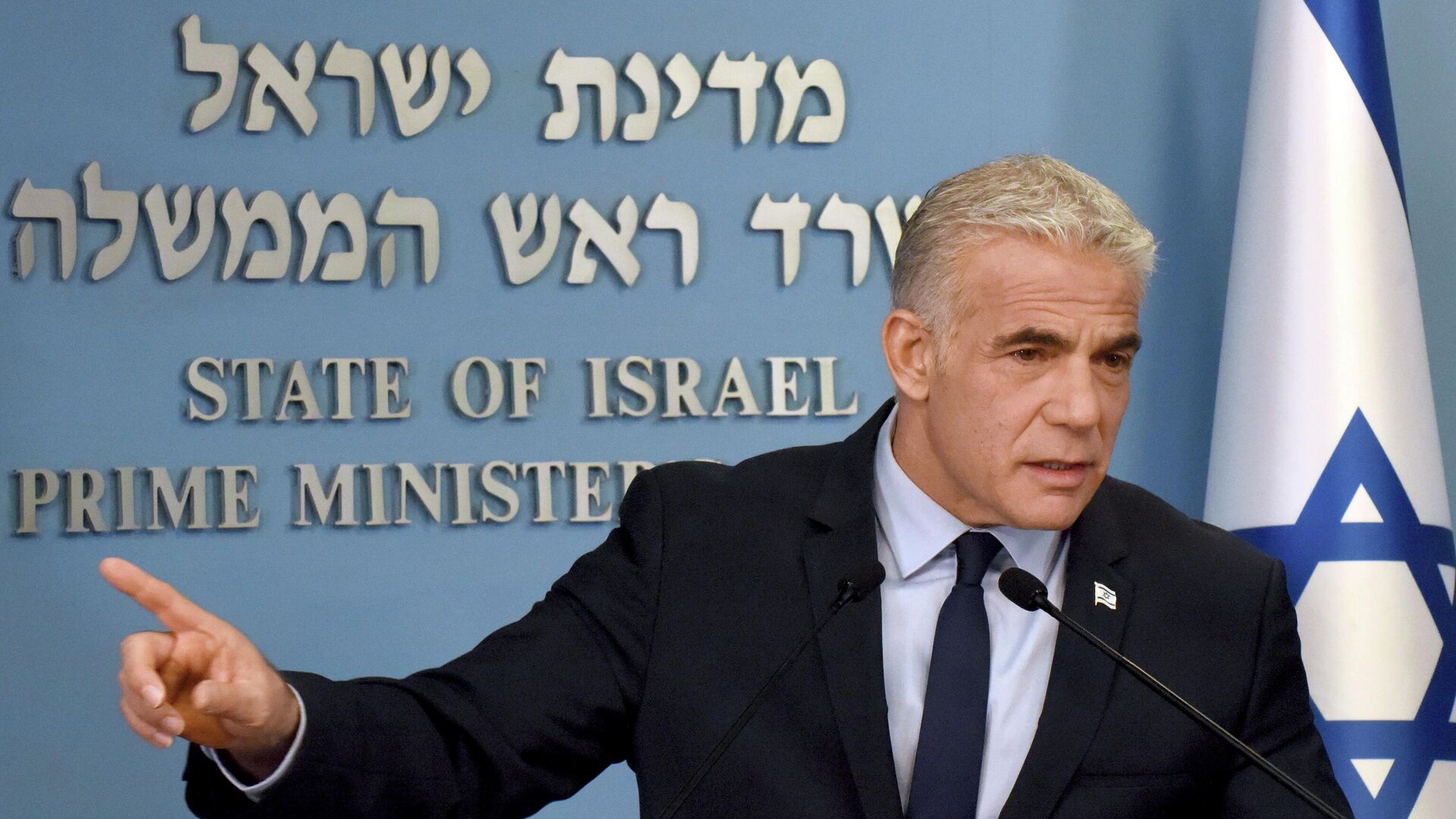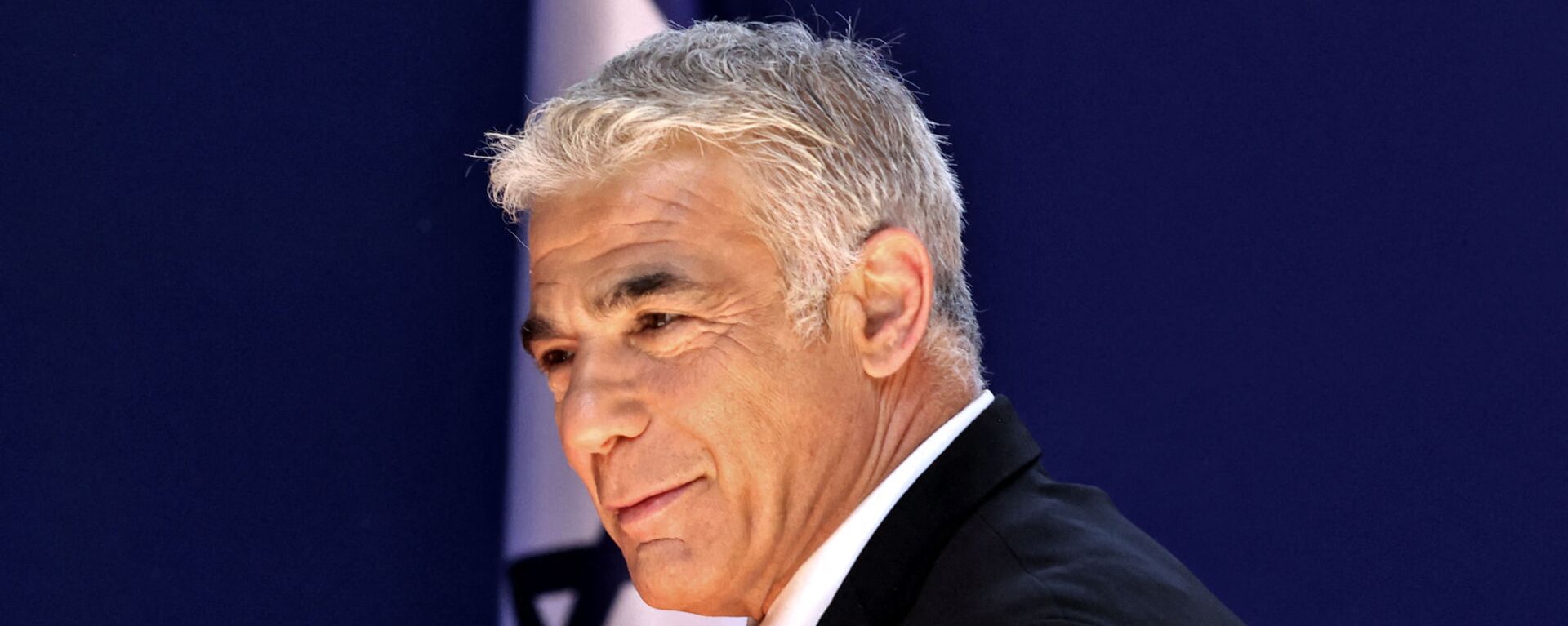At First Israel-EU Talks in a Decade, Lapid Says He Supports Two-State Solution, Opposes JCPOA
22:16 GMT 03.10.2022 (Updated: 11:44 GMT 09.02.2023)

© AP Photo / Debbie Hill
Subscribe
During the first high-profile talks between Israeli and European diplomats in a decade, Israeli Prime Minister Yair Lapid reiterated his commitment to the formation of a separate Palestinian state, but also voiced his disapproval of talks to revive the 2015 nuclear deal with Iran.
"I expressed once more my commitment to the two-state solution,” Lapid told the EU-Israel Association Council, referring to his speech last month at the United Nations General Assembly in New York. “But the Palestinians need to put an end to terrorism and incitement,” he added. "Israel wants peace that will lead to security, not peace that will destabilize the Middle East.”
"Over the past year, there has also been a positive change in our work with the Palestinian Authority," Lapid told the EU diplomats. "We are working with them and helping their economy develop.”
The Association Agreement between Israel and the EU is the framework for their relations in all domains. The agreement was intended to be discussed and updated every year in a council, but because of diplomatic differences, especially on the Palestinian issue, it has not convened for over 10 years.
Israel’s association agreement with the EU dates to 1995 and is the framework for relations between the Jewish State and the 27-member political bloc. It was intended to be discussed and updated annually in a council, but in the wake of Operation Cast Lead, Israel’s 2009 war against Gaza that killed more than 1,100 people, the talks fell off in 2012.
Last year, when Lapid was Israel’s foreign minister, he set in motion the revival of the Association Council talks in Brussels.
Situation in Palestinian Territories 'Deteriorating'
At a press conference in July, EU foreign policy chief Josep Borrell said the EU’s position “has not changed with respect to the Middle East peace process.”
“We know that the situation on the ground in the Palestinian territories is deteriorating, and I think that the ministers agreed that this Association Council would be a good occasion to engage with Israel about these issues,” he added.
The EU’s office for the West Bank, Gaza Strip, and East Jerusalem - what the UN calls the “occupied Palestinian territories (OPT)” - says it works with the Palestinian National Authority “to build up the institutions of a future democratic, independent and viable Palestinian State living side-by-side with Israel in peace and security.”
On paper, Jerusalem’s position since the 1995 Oslo agreements has also been in support of creating a separate Palestinian state. However, three decades of unimpeded Jewish settlement beyond the 1967 borders, combined with the construction of a network of fences, border walls, and checkpoints, have created isolated pockets of Palestinian land that one activist described as a “Palestinian archipelago.”
The last two years have been no exception, as Lapid and his predecessor, Naftali Bennett, have approved the construction of thousands of homes for Jewish settlers, even with an Arab party as part of their governing coalition for the first time in Israeli history.
Talking to reporters prior to the meeting, Borrell described as “very worrisome” a recent UN report finding that the number of Palestinians killed this year is the most since 2007. That includes Palestinian-American journalist Shireen Abu Akleh, who was shot and killed while covering an Israeli military operation in the West Bank city of Jenin in May. The Israel Defense Forces (IDF) admitted last month that IDF soldiers had likely shot Akleh, but declined to punish any of the troops in question.
Opposition to JCPOA
Lapid also told the EU that he still disapproves of its efforts to revive the Joint Comprehensive Plan of Action, a 2015 deal between Iran and seven other powers that was intended to avoid the possibility of Tehran acquiring a nuclear weapon. The US unilaterally withdrew from the deal in 2018, and the EU has headed indirect talks between Washington and Tehran on reviving the deal since early 2021.
Israel has long claimed the deal was inadequate, accusing Iran of secretly continuing its nuclear weapons research - claims Iran has denied. No evidence has ever been found by the United Nations inspectors or produced by US or Israeli intelligence to show that Iran has engaged in such research since 2009.
"Even though we disagree on the JCPOA, we all agree that everything must be done to prevent Iran from becoming a nuclear state," Lapid emphasized.
"We are all united in our desire to stop Iran from obtaining a nuclear weapon," he said. "This is a regime that is murdering its citizens even as we speak."


